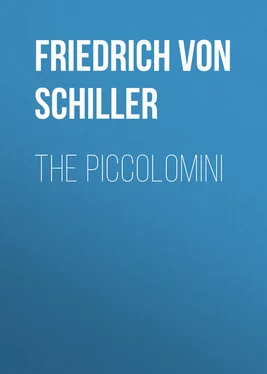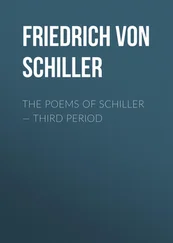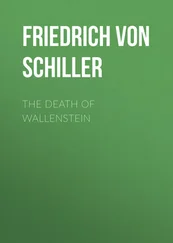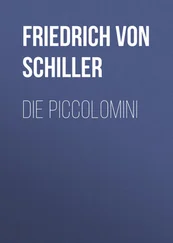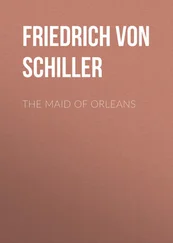SENI (with gravity)
My son, there's nothing insignificant,
Nothing! But yet in every earthly thing,
First and most principal is place and time.
FIRST SERVANT (to the second). Say nothing to him, Nat. The duke
himself must let him have his own will.
SENI (counts the chairs, half in a loud, half in a low voice, till he comes to eleven, which he repeats)
Eleven! an evil number! Set twelve chairs.
Twelve! twelve signs hath the zodiac: five and seven,
The holy numbers, include themselves in twelve.
SECOND SERVANT. And what may you have to object against eleven? I should like to know that now.
SENI
Eleven is transgression; eleven oversteps
The ten commandments.
SECOND SERVANT. That's good? and why do you call five a holy number?
SENI
Five is the soul of man: for even as man
Is mingled up of good and evil, so
The five is the first number that's made up
Of even and odd.
SECOND SERVANT. The foolish old coxcomb!
FIRST SERVANT. Ay! let him alone though. I like to hear him; there is
more in his words than can be seen at first sight.
THIRD SERVANT. Off, they come.
SECOND SERVANT. There! Out at the side-door.
[They hurry off: SENI follows slowly. A page brings the staff of command on a red cushion, and places it on the table, near the duke's chair. They are announced from without, and the wings of the door fly open.
WALLENSTEIN, DUCHESS.
WALLENSTEIN
You went, then, through Vienna, were presented
To the Queen of Hungary?
DUCHESS
Yes; and to the empress, too,
And by both majesties were we admitted
To kiss the hand.
WALLENSTEIN
And how was it received,
That I had sent for wife and daughter hither
To the camp, in winter-time?
DUCHESS
I did even that
Which you commissioned me to do. I told them
You had determined on our daughter's marriage,
And wished, ere yet you went into the field,
To show the elected husband his betrothed.
WALLENSTEIN
And did they guess the choice which I had made?
DUCHESS
They only hoped and wished it may have fallen
Upon no foreign nor yet Lutheran noble.
WALLENSTEIN
And you – what do you wish, Elizabeth?
DUCHESS
Your will, you know, was always mine.
WALLENSTEIN (after a pause)
Well, then, —
And in all else, of what kind and complexion
Was your reception at the court?
[The DUCHESS casts her eyes on the ground, and remains silent.
Hide nothing from me. How were you received?
DUCHESS
O! my dear lord, all is not what it was.
A canker-worm, my lord, a canker-worm
Has stolen into the bud.
WALLENSTEIN
Ay! is it so?
What, they were lax? they failed of the old respect?
DUCHESS
Not of respect. No honors were omitted,
No outward courtesy; but in the place
Of condescending, confidential kindness,
Familiar and endearing, there were given me
Only these honors and that solemn courtesy.
Ah! and the tenderness which was put on,
It was the guise of pity, not of favor.
No! Albrecht's wife, Duke Albrecht's princely wife,
Count Harrach's noble daughter, should not so —
Конец ознакомительного фрагмента.
Текст предоставлен ООО «ЛитРес».
Прочитайте эту книгу целиком, купив полную легальную версию на ЛитРес.
Безопасно оплатить книгу можно банковской картой Visa, MasterCard, Maestro, со счета мобильного телефона, с платежного терминала, в салоне МТС или Связной, через PayPal, WebMoney, Яндекс.Деньги, QIWI Кошелек, бонусными картами или другим удобным Вам способом.
A town about twelve German miles N.E. of Ulm.
The Dukes in Germany being always reigning powers, their sons and daughters are entitled princes and princesses.
Carinthia.
A town not far from the Mine-mountains, on the high road from Vienna to Prague.
In the original, —
"Den blut'gen Lorbeer geb' ich hin mit Freuden
Fuers erste Veilchen, das der Maerz uns bringt,
Das duerftige Pfand der neuverjuengten Erde."
